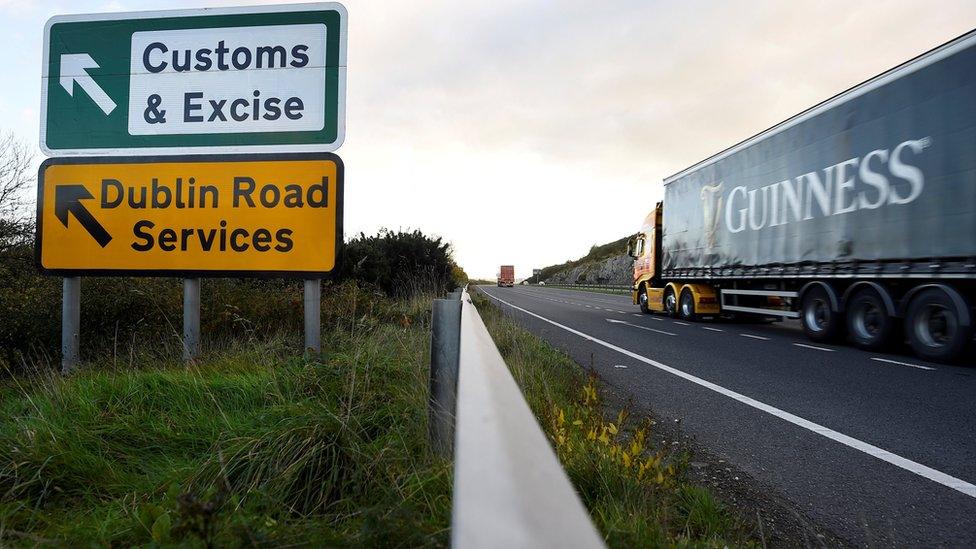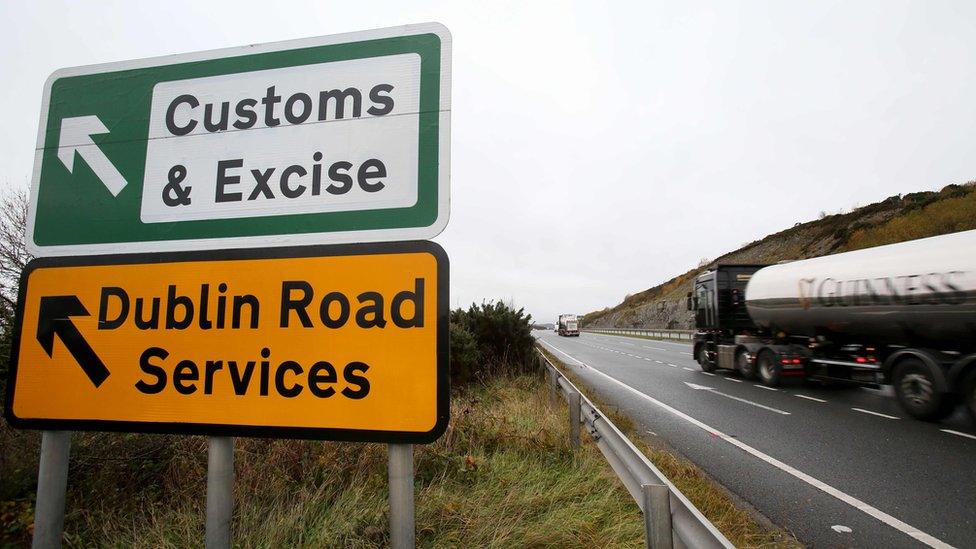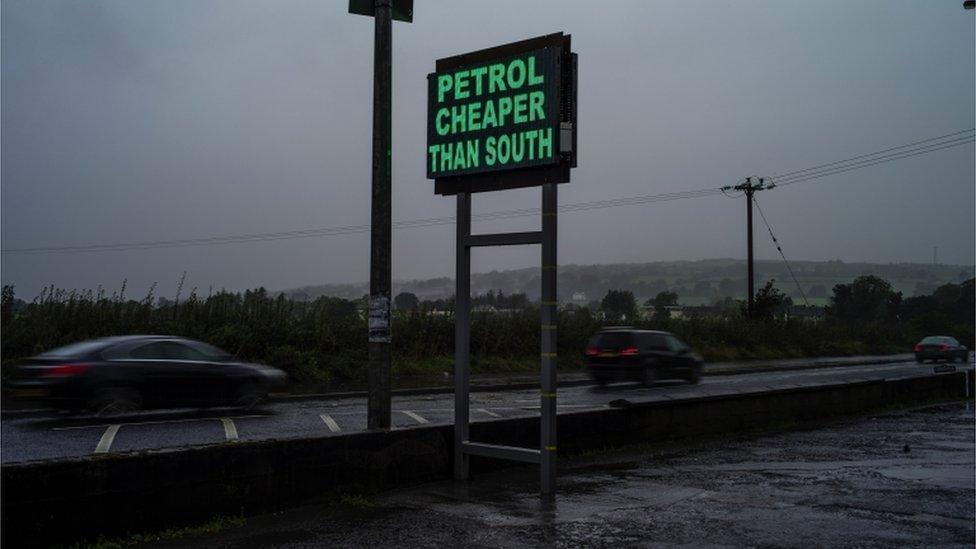Brexit: Operation Yellowhammer warns of NI roadblocks and protests
- Published

A government document has raised the prospect of roadblocks and other protests in NI as potential fallout from a no-deal Brexit.
Operation Yellowhammer scenarios were published on Wednesday night.
The document, external said that some cross-border trade would stop and agri-food would be worst hit by tariffs.
"Disruption to key sectors and job losses are likely to result in protests and direct action with road blockages," it added.
The document, dated 2 August, was leaked to the Sunday Times last month, external.
It predicted some firms would stop trading and those that continued would face higher costs which could be passed on to consumers.
The government said the document was a set of "reasonable worst case scenarios".
It said its intended plan to impose no new checks or tariffs on goods coming from the Republic of Ireland into Northern Ireland would quickly become "unsustainable".
Economic, legal and biosecurity risks would mean it would have to be changed in a matter of "days or weeks".
It also suggested a no deal could lead to an increase in cross-border smuggling.
The document also said that up to 13 non-UK vessels could end up fishing illegally in Northern Ireland waters on day one of a no-deal Brexit.
It said around the UK similar situations could lead to clashes at sea.
There may also be significant increases in electricity prices, and disruption to cross-border UK financial services, the document predicted.
The document states that no bilateral deals have been concluded with individual member states, "with the exception of the reciprocal agreement on social security coordination with Ireland".
'On our knees'
Speaking on the BBC's Good Morning Ulster programme, Sinn Féin deputy leader Michelle O'Neill said the papers demonstrate "the catastrophic implications of Brexit in black and white".
"It means that we are going to be on our knees," she added.
She said it was "very possible" that there could be disruption on the streets, and that she believed the DUP were "working against" industry experts.
But the DUP's Sir Jeffrey Donaldson told the BBC's Today programme that things like smuggling already happen in Northern Ireland and are a "perennial problem".
He added that Yellowhammer outlined the worst case scenarios, and a united Ireland is not more likely because of the DUP's stance on Brexit.
No deal advice
Northern Ireland firms that export to the EU are to be given advice on how to cope with a no-deal Brexit.
The first of four events in the coming weeks will take place in Ballymena on Thursday morning.
They will include presentations on how to deal with EU regulations on trade.
Last week, it emerged that 1.9 million food standard certificates, or EHCs, signed by vets, would be needed if current sales of agri-food to the EU were to continue.

What are EHCs?
An EHC is an official document that confirms a food or animal export meets the health and quality requirements of the importing country.
The EHC has to be signed by a vet or other qualified person in the exporting country after they have inspected the goods.
Food products being imported into the EU from a non-member state require EHCs.
They're signed by vets to assure the importing country that produce is safe and without them trade can happen.
Around 18,000 of them a year are currently produced in Northern Ireland mostly to cover the trade in live animals to Britain.
Read more here.

The Department of Agriculture, Environment and Rural Affairs also said it expected that not all companies would be able to comply with the new rules and the pattern of some trade could change.
Revenue officials will also attend the briefing as will staff from the Food Standards Agency and local councils.
There'll also be stands with advice on trade in things like milk, meat fish and eggs as well as advice on the implications for waste and water companies.
Four such events will be held between now and 1 October, two in Ballymena and one each in Omagh and Craigavon.
Businesses are being urged to apply on a first come first served basis.
- Published6 September 2019

- Published4 September 2019

- Published24 June 2019
